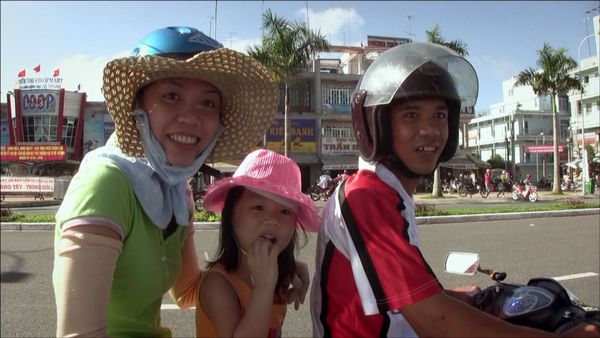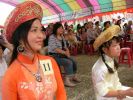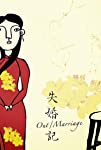Eye For Film >> Movies >> Out/Marriage (2012) Film Review
Out/Marriage
Reviewed by: Jennie Kermode

"Everyone thinks that we do it for money," is a lament that we hear repeatedly in this documentary about women from Vietnam and Indonesia who arranged to be married to Taiwanese men. It's not true, says director Nguyen Kim Hong, who shares this experience herself. They want social opportunity, friendship, love. Growing up in a small village, shy and unable to fit in at school, she spent her days at home with her mother and despaired of ever finding a man - a tough situation to be in in a culture where raising a family is still seen as the primary focus of a woman's life. Afraid of being left on the shelf, she turned to her aunt for advice and ended up trying to raise a small child in a country where she barely spoke the language with an uncaring husband who gambled away everything they had.
Nguyen's film focuses partly on her own story and partly on those of four other women: Jin-ling, Yu-lan, Mei-li and A-shi, the latter of whom is now in an unhappy-looking relationship with the director's brother. All four of them have returned to their home countries after their Taiwanese marriages collapsed. Gambling seems to have been a persistent problem, along with laws which enabled the husbands to pass on their debts to their wives. Several of the marriages involved domestic violence, with women who had been raised to try and make men happy not understanding what they could be doing wrong. Reaching out for help was made still harder by the language barrier, social isolation and the dismissive attitude of the police. Jin-lling's young daughter presents two drawings of her parents: one from before the beatings started, in which they look close and happy, and one from afterwards, in which mummy looks sad.

Going beyond the marriage stories themselves, Nguyen looks at the aftermath - the longing to move back home and then, on arriving, the difficulty of being seen as tainted, with poor dating prospects going forward. All of the children we meet are supportive of their mothers' choices (just one, who has never met his father, expresses a strong desire to do so), but the mothers worry that they're missing out on the much better education they would have received in Taiwan, as well as being subjected to bullying because of their mixed parentage. If one of their hope upon marrying was that they might better themselves, it's difficult to face the prospect of their children having a worse future because of their decisions.
Nguyen is not an experience filmmaker (she's made one more documentary since this one, which was initially released in 2012 but has attracted renewed attention as part of this year's Taiwan Film Festival Edinburgh), and her technique here is very basic, but the intimacy of the women's testimony keeps it interesting. She's built close relationships with all of them and the fact that she shares their experience means they approach what they have to say in a matter of fact way, neither exaggerating nor playing down their experiences. The way some of them take abuse for granted sends a strong message of its own, and one worries that Jin-ling, in particular, has still not understood that she deserves better, or found a way to believe that a better relationship might be possible.
There's a lot of subtext here, especially around the sense of entitlement that accompanies Taiwanese masculinity and the habituated low self esteem of the women, which seems to have been a problem long before the marriages occurred and hasn't been changed by the frankly remarkable toughness they have shown in getting out of them. Questions might also be asked about poverty of opportunity as a birthright and the difficulty of making any relationship work when there's such a massive power imbalance at its core. Nguyen's film simply delivers the women't stories and leaves viewers to draw their own conclusions - but these are valuable voices, too rarely heard.
Reviewed on: 19 Sep 2020
















